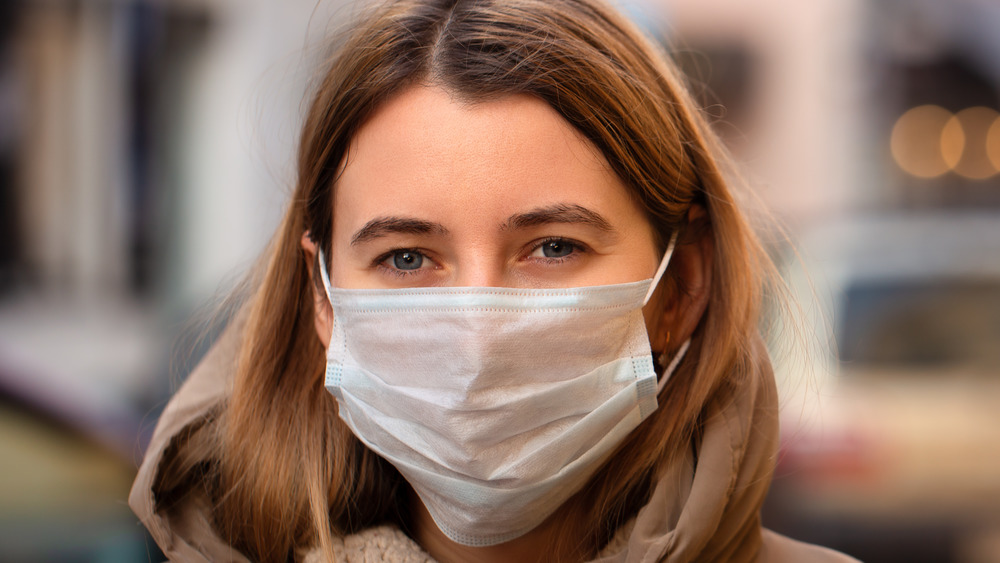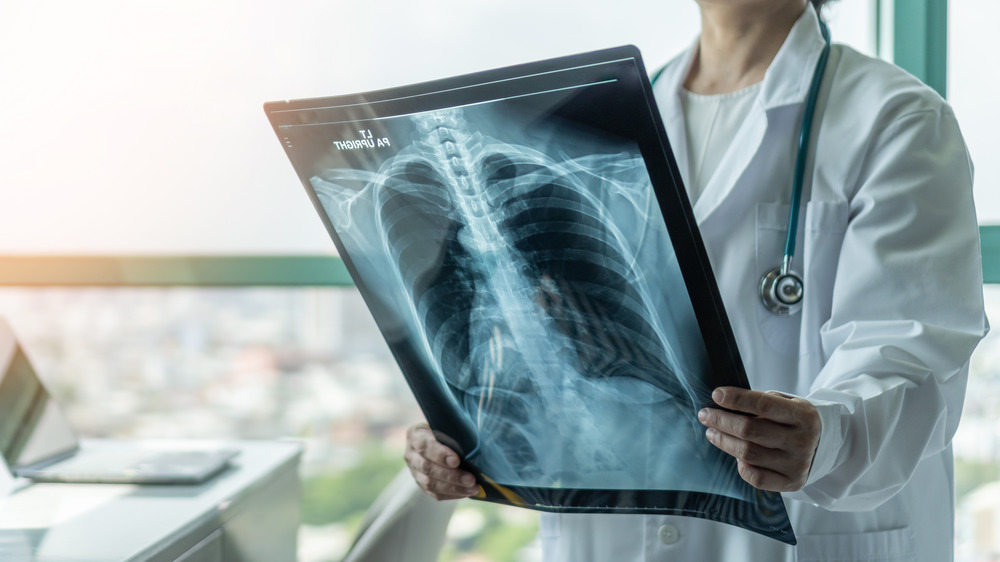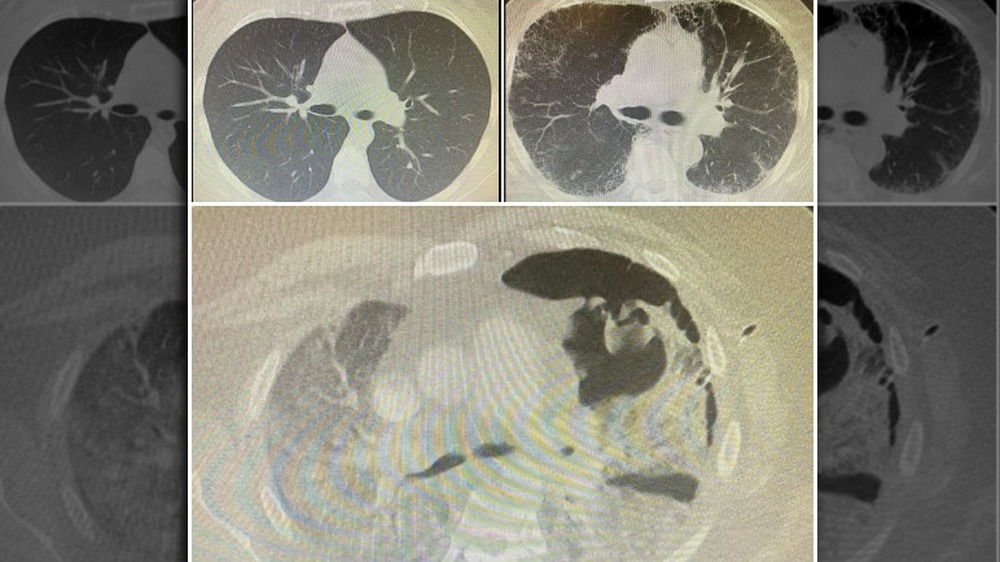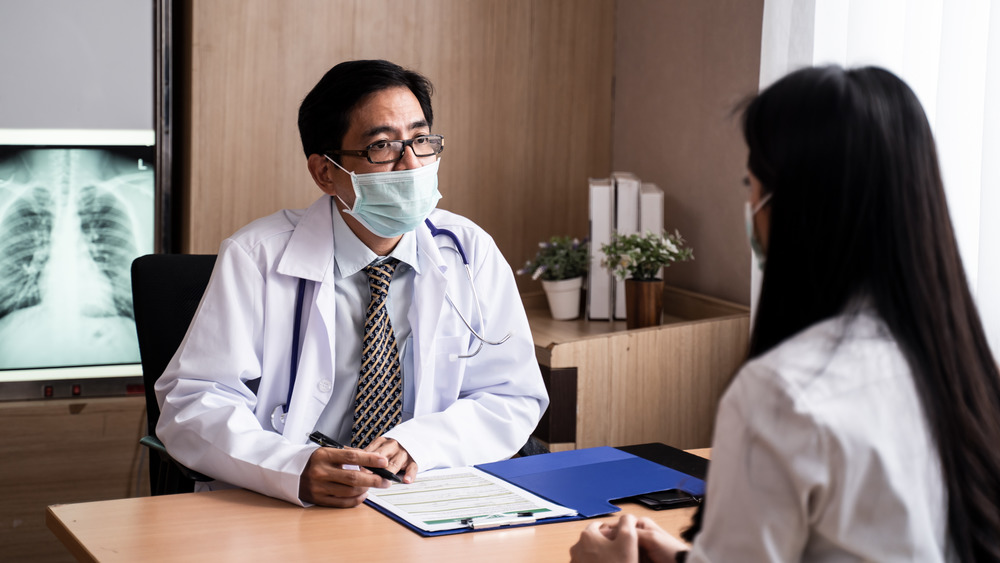Some COVID Survivors Suffer Worse Lung Damage Than Smokers. Doctor Explains.
It's been almost a year since the world was rocked by the COVID-19 pandemic. In that time, medical professionals and researchers have, thankfully, learned much more about the virus that has made mask wearing, social distancing, and hand sanitizing integral parts of our daily routines.
Through that understanding, treatment for the coronavirus has also come a long way from the early days that saw many hospitals not just overrun, but struggling to save lives without enough equipment or effective medicines. According to Healthline, nearly 4 million people have successfully recovered from COVID-19, which is wonderful news, but the same data also suggests that many survivors are showing signs of long term health problems as a result of lung damage caused by the infection.
Dr. Rachel Medbery, a thoracic surgeon at Cardiothoracic and Vascular Surgeons (CTVS) in Austin, Texas, has been treating patients with what the medical community calls, "post-COVID lungs." She recently spoke with The List about her first hand experience with recovered COVID-19 patients and expressed her fears that while some survivors experience minimal damage there are many that "seem to have their lungs be totally destroyed" with lingering health concerns from scarring of the lung tissue that is worse than the lungs of a heavy smoker.
It's still the very early stages of understanding the effects COVID-19 has on the lungs even after recovery
Dr. Medbery explained that as of right now, the severity of a survivor's lung damage cannot be quantified by any predetermined factors, and even lung imaging doesn't always reflect a patient's symptoms. Meaning, there's no real rhyme or reason why some survivors have little to no lingering lung damage and others develop severe tissue damage.
She explained, "It is difficult to say at this time what the lasting effects of COVID will be on the lungs. We're still learning so much about the lungs and how they will heal and if they will heal. We know that as soon as smokers stop smoking, the lungs can heal. But we are so early in the course of COVID, we don't know if COVID survivors' lungs will heal."
When it comes to PSA's about why it's important to follow CDC protocols to prevent contracting and spreading COVID, the prospect of permanently damaged lungs and a lifetime of chronic breathing problems should be enough to scare people into compliance. But for healthcare workers like Dr. Medbery, the real fear is in the unknown. She explained, "The virus and its effects on people and their lungs seems so erratic. It's unclear why some patients experience far worse damage to their lung tissues than others. Moreover, we don't know what this will mean for patients in the future. Some believe that long-term effects could include interstitial lung disease which might lead to chronic shortness of breath and need for oxygen. On the other hand, some patients may have complete healing."
How smokers lungs compare to post-COVID lungs
The risks associated with smoking are well documented, but no one anticipates catching a virus, recovering, and then suffering from lung damage that's comparable or in many cases worse than the tissue damage and scarring of someone who has been a lifelong smoker. That's the scary reality Dr. Medbery is seeing in many of her post-COVID patients, even those who were asymptomatic and didn't realize they had the virus.
She shared the above CT scans to illustrate. On top left are healthy lungs. Dr. Medbery explains they appear "grayish-black" in imaging but would in actuality, "look like a fluffy pink sponge." The smokers lungs, top right, have distinct scarring, which is noticeable on the scan from "the white areas." She adds that the smokers lungs in the operating room would present "blackish and almost like tissue paper." COVID lungs are on the bottom, and as Dr. Medbery explains, "have very dense scarring." Adding, "In [the] OR the lungs are very hard and cystic, almost as if they are filled with rocks or concrete. The COVID lung image also shows a patient with a collapsed lung (black area around the white scarred lung tissue)."
While asymptomatic COVID-19 patients aren't getting lung scans because they don't have symptoms during infection, Dr. Medbery is seeing these patients in growing numbers at her practice, "weeks to months later." Adding, "some of them are presenting with pneumonias or lung collapse." She stresses, "My hunch would be that there is some low-lying lung damage in asymptomatic patients, and we might see the effect of that months to years later, not immediately."
You should never wait to see a doctor if you develop respiratory symptoms
While it might seem frustrating that so much is still unknown about the lasting effects for individuals, who the medical community has categorized as "long-haul COVID" patients, per Scientific American, Dr. Medbery stresses that being aware of changing symptoms and motivated in seeking the advice of medical professionals will afford patients the best outcome.
She explains, "Because we don't exactly know how this will play out long-term, it's hard to predict the best treatment. Of course, patients should refrain from smoking or vaping, as this will further damage their lungs on top of any damage from COVID." She adds, "Patients should also be proactive and if they notice any new or unusual respiratory symptoms develop after they were infected with COVID, they should see their doctor right away. Prompt evaluation and potential treatment will undoubtedly lead to better outcomes."
The difficulty in not only diagnosing patients, but the inability to offer them any hope of a definitive treatment is something universally felt in the medical community during these difficult times. It makes it even more imperative to follow CDC guidelines to avoid contracting and spreading the virus, and when available, get vaccinated.
Dr. Medbery adds, "There is so much we don't know ... counseling patients about future expectations is almost impossible. It's going to take us years to figure all of this out."



